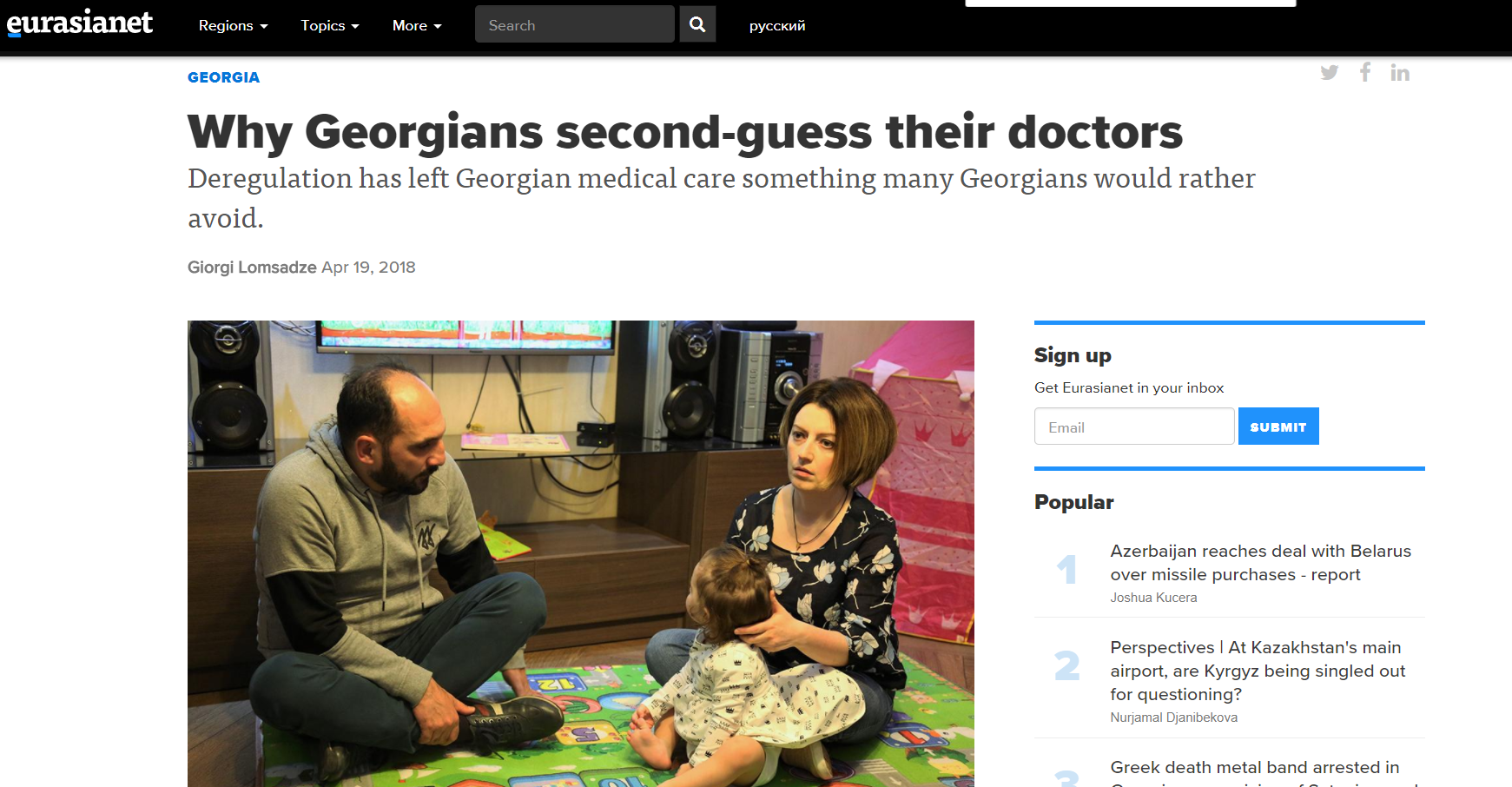[vc_row][vc_column][vc_column_text]
March 24 is the time to join the global movement to end tuberculosis. Curatio International Foundation joins global society to mobilize resources to further progress in eliminating TB as a public health burden. In recent years, Curatio International Foundation together with its global partners has implemented several projects at both the national and international levels addressing TB financing, transition from donor funding and TB community strengthening. We believe our commitment will result in a better environment to broadening the prospects of a TB-free world.
Results4TB: Designing and evaluating provider results-based financing for tuberculosis care in Georgia
Curatio International Foundation in partnership with Queen Margaret University (UK), the London School of Hygiene and Tropical Medicine (UK) and the Antwerp Institute of Tropical Medicine (Belgium) is implementing a study entitled ‘Designing and evaluating provider results-based financing for tuberculosis care in Georgia: understanding costs, mechanisms of effect and impact’. The 48-month research project will assist the government of Georgia in developing a provider incentive payment scheme for tuberculosis for better TB care. The study will generate evidence of its new financing scheme effects on the adherence and treatment success rates and costs.[/vc_column_text][ultimate_spacer height=”20″][vc_simple_slider ids=”6443″][ultimate_spacer height=”20″][vc_column_text]The project is funded through the Joint Health Systems Research Initiative, which is jointly funded by the Department of International Development, the Economic and Social Research Council, the Medical Research Council and the Wellcome Trust.
The beneficiaries of this research are TB patients, nurses and physicians involved in TB care, health facility managers, policy-makers, community members and the scientific community in Georgia, in the region and globally. The research will narrow the knowledge gap that exists around RBF interventions, such as their application in public and private settings and their cost-effectiveness, the conditions of success and the wider (negative and positive) consequences of the scheme. The research will also produce methodological innovations regarding the use of realist evaluation alongside impact evaluation and cost-effectiveness analysis.[/vc_column_text][ultimate_spacer height=”20″][vc_simple_slider ids=”6444″][ultimate_spacer height=”20″][vc_column_text]National policy-makers will use the evidence produced through this research to reform the financing of outpatient TB care in a way that improves the efficiency, quality and sustainability of services. Additionally, findings will be beneficial for other LMICs, particularly for those with a similar vertical organization of TB services (most of the former socialist countries of Eastern and Central Europe and Central Asia) and for countries where private providers play an important role in the provision of TB services.
Read the blog prepared alongside the project.
Assessing the impact of donor co-financing and transition policies on TB Commodity Procurement
The Curatio International Foundation recently began the implementation of the project entitled: Assessing impact of donor co-financing and transition policies on TB Commodity Procurement. The project is financially supported by the Stop TB partnership and UNOPS, initiated by Global Drug Facility (GDF).
The assignment will last 10 months and aims to assess the positive and negative implications The Global Fund’s (TGF) Sustainability, Transition and Co-Financing Policy (STCP) that may have on TB commodity procurement practices on a country level within the EECA region.
Based on the goal of the assignment the project has the following objectives:
- Develop a methodological approach necessary for systematically documenting and assessing the challenges and opportunities related to the TB commodity procurement practices arising from TGF’s STCP
- Using a methodological approach and standard tools, systematically assess and document experiences related to TB commodity procurement practices during and after the transition in the countries that have graduated from TGF support or are already implementing STCP and paying for parts of TB commodity purchase.
After the successful completion of the project, a scientific article will be published in a peer reviewed international journal describing the key findings from all the assessed EECA region countries.
The project findings will help countries become more awareness of existing gaps and will assist them in taking the appropriate actions for change.
TB Community Systems Strengthening (TBCSS) Project in Georgia
The Curatio International Foundation implemented the TB Community Systems Strengthening (TBCSS) project in Georgia which was funded by the Stop TB partnership. The project started in 2016 and lasted for one year.
The overarching goal of the TBCSS project was to build-up integrated and comprehensive responses to TB that are patient-centered, and include a strong partnership with communities and civil society.[/vc_column_text][ultimate_spacer height=”20″][vc_simple_slider ids=”6445,6446″][ultimate_spacer height=”20″][vc_column_text]The project had three main objectives: 1: To assess the legal and social environment, the capacity of civil society, and the gaps and needs for engaging civil society in the TB community response; 2: to improve organizational strength for the sustainable development of civil society in the TB field; 3: Improve the links, coordination and networking of TB constituencies, civil society organizations, as well as state and other actors.
CIF inventoried all civil society organizations (CSO) working on tuberculosis issues in Georgia, with the financial support of Stop TB Partnership through the CFCS round 7. In the framework of this project, a TB CSO informational directory was developed which is available here.
TB Coalition Georgia has already been registered as a legal entity and several capacity development activities have been held that aim to strengthen the coalition with the support of the Curatio International Foundation. As a significant outcome of the project, one recent forum of civil societies organized by Country Coordination Mechanism, TB Coalition Georgia has initiated several advocacy topics to support the fight against TB in Georgia[/vc_column_text][ultimate_spacer height=”20″][/vc_column][/vc_row]


